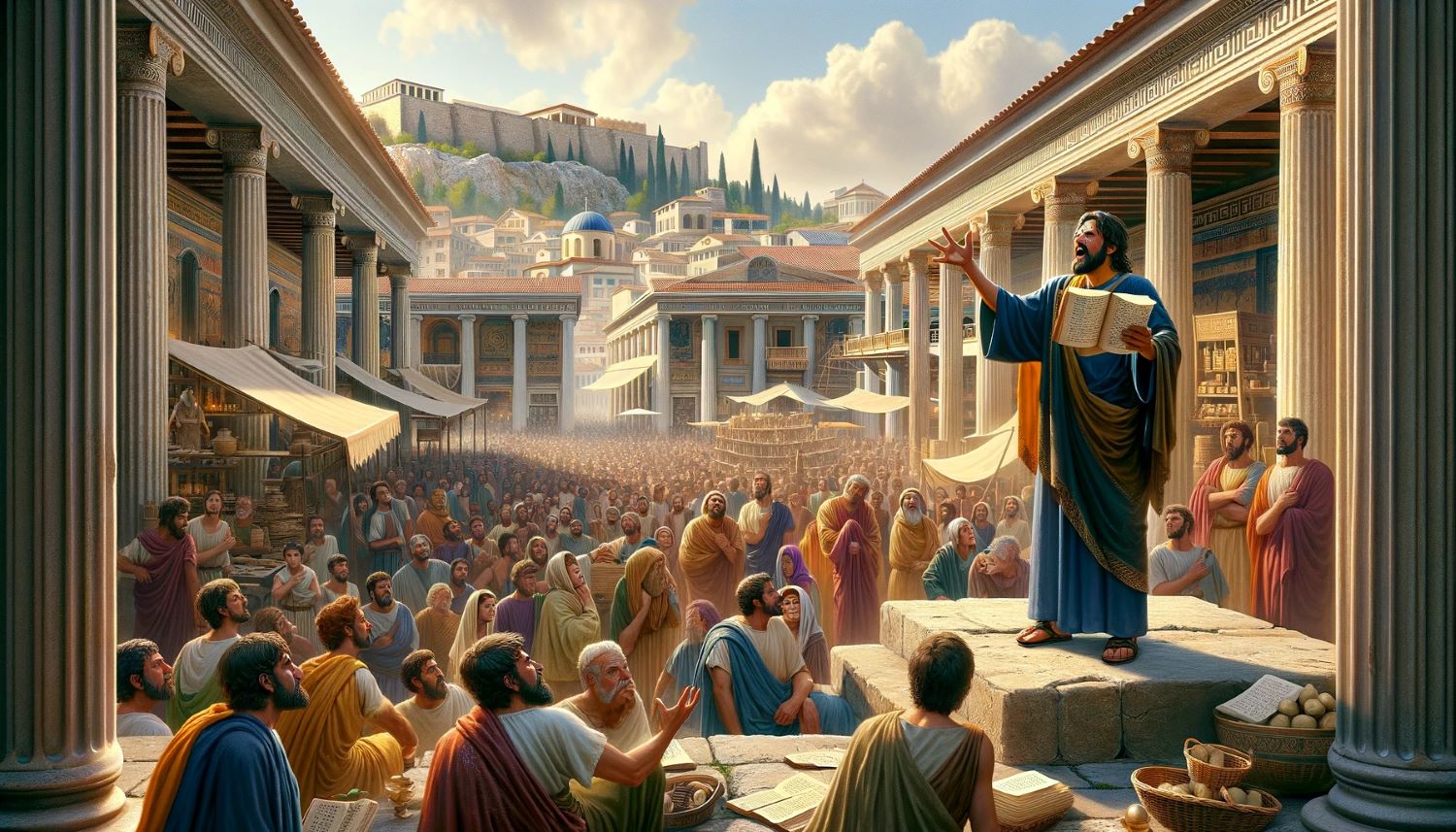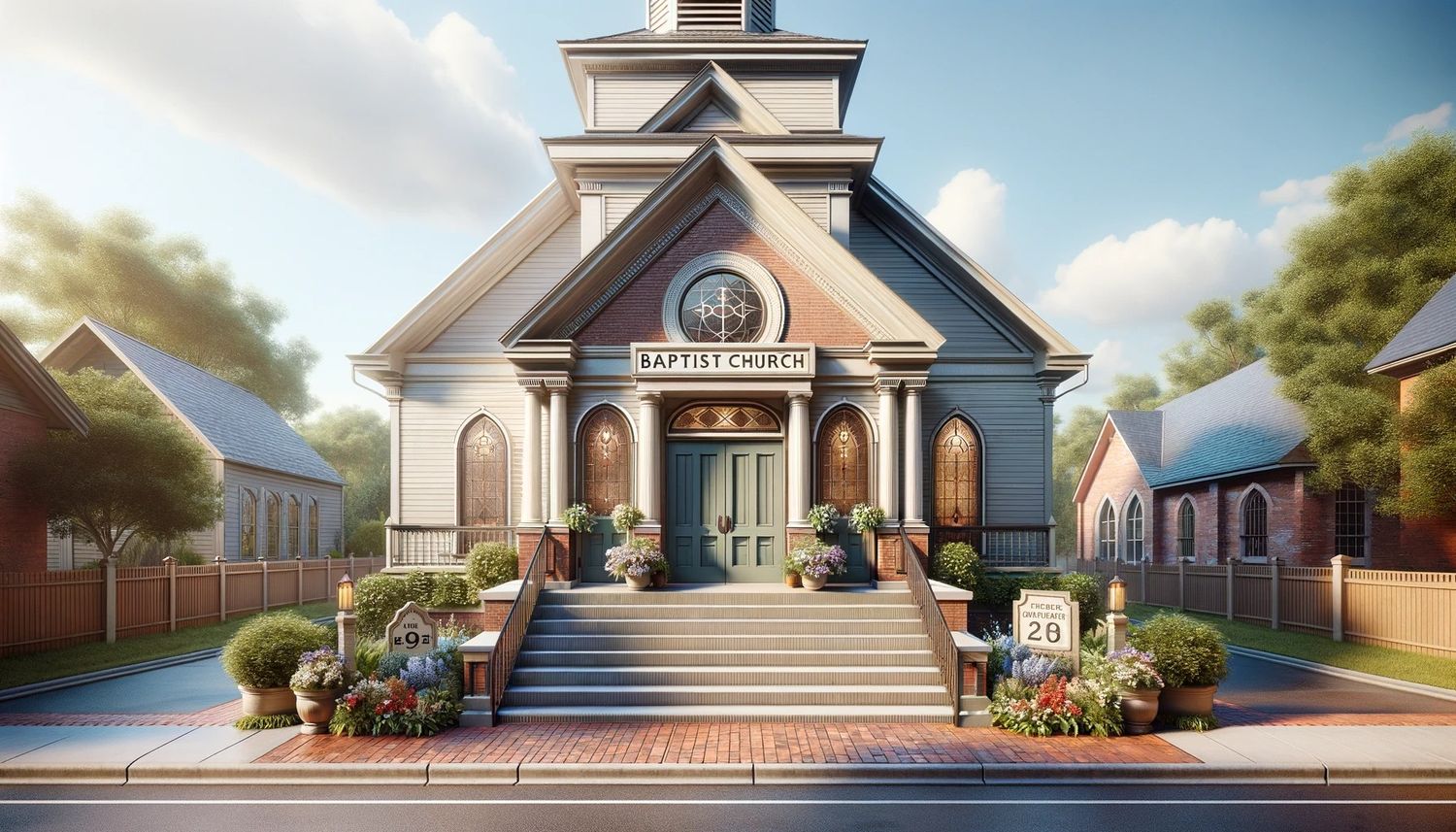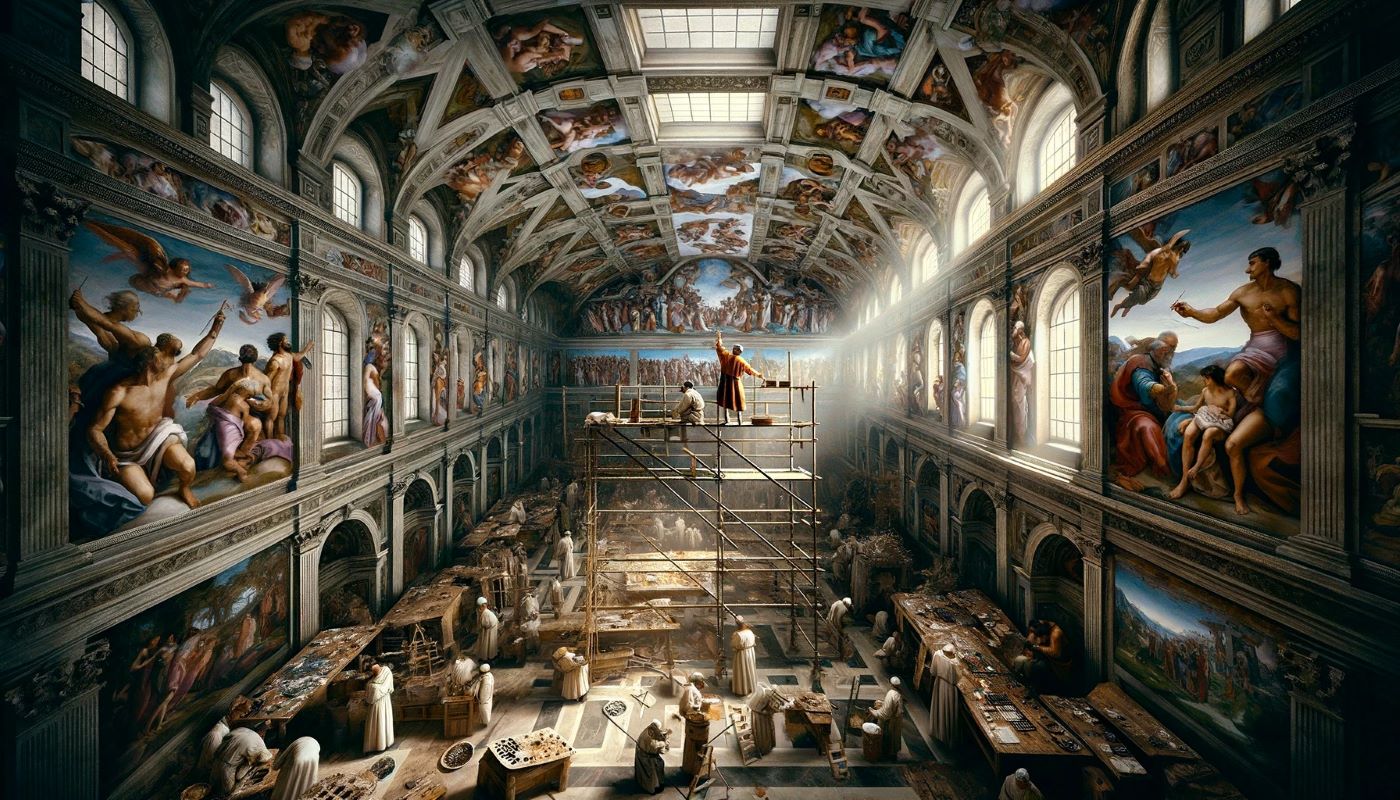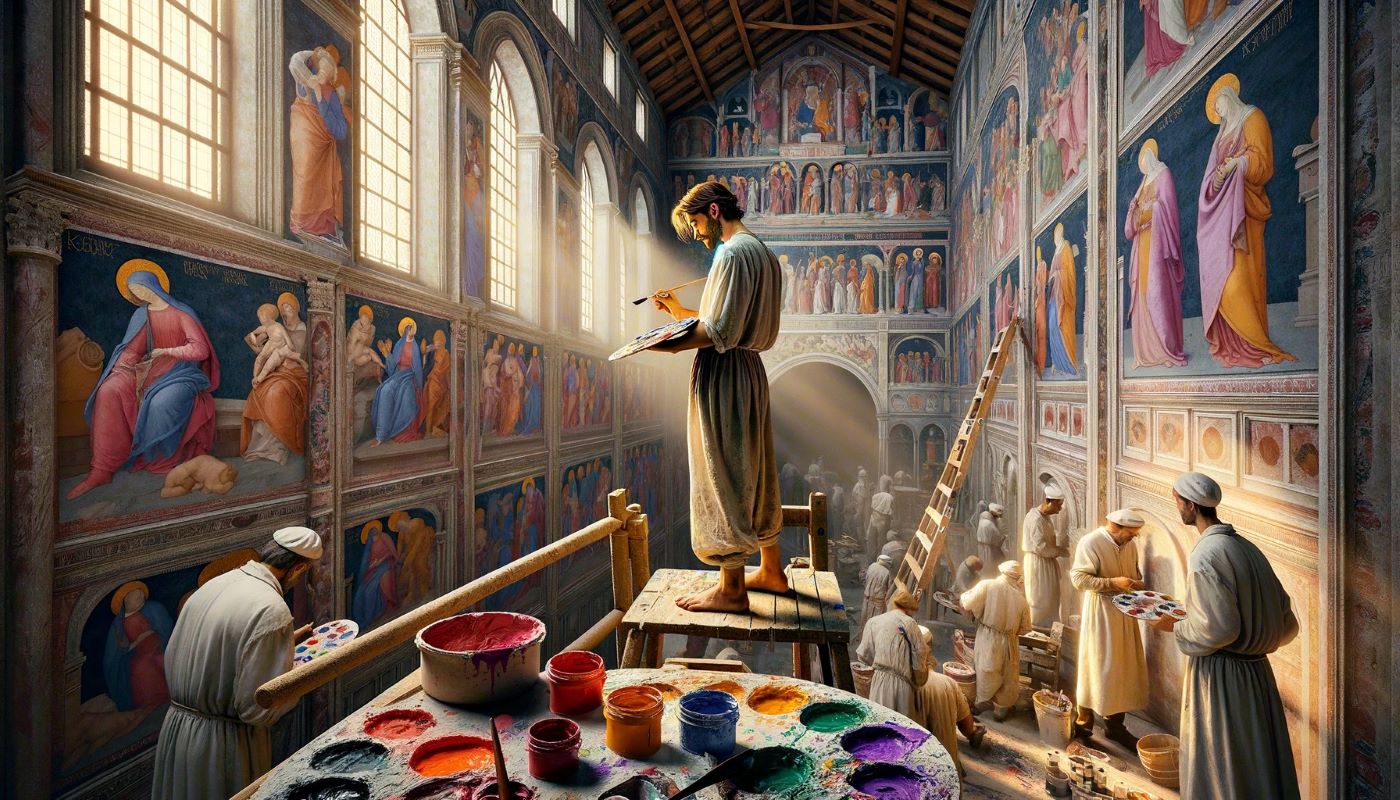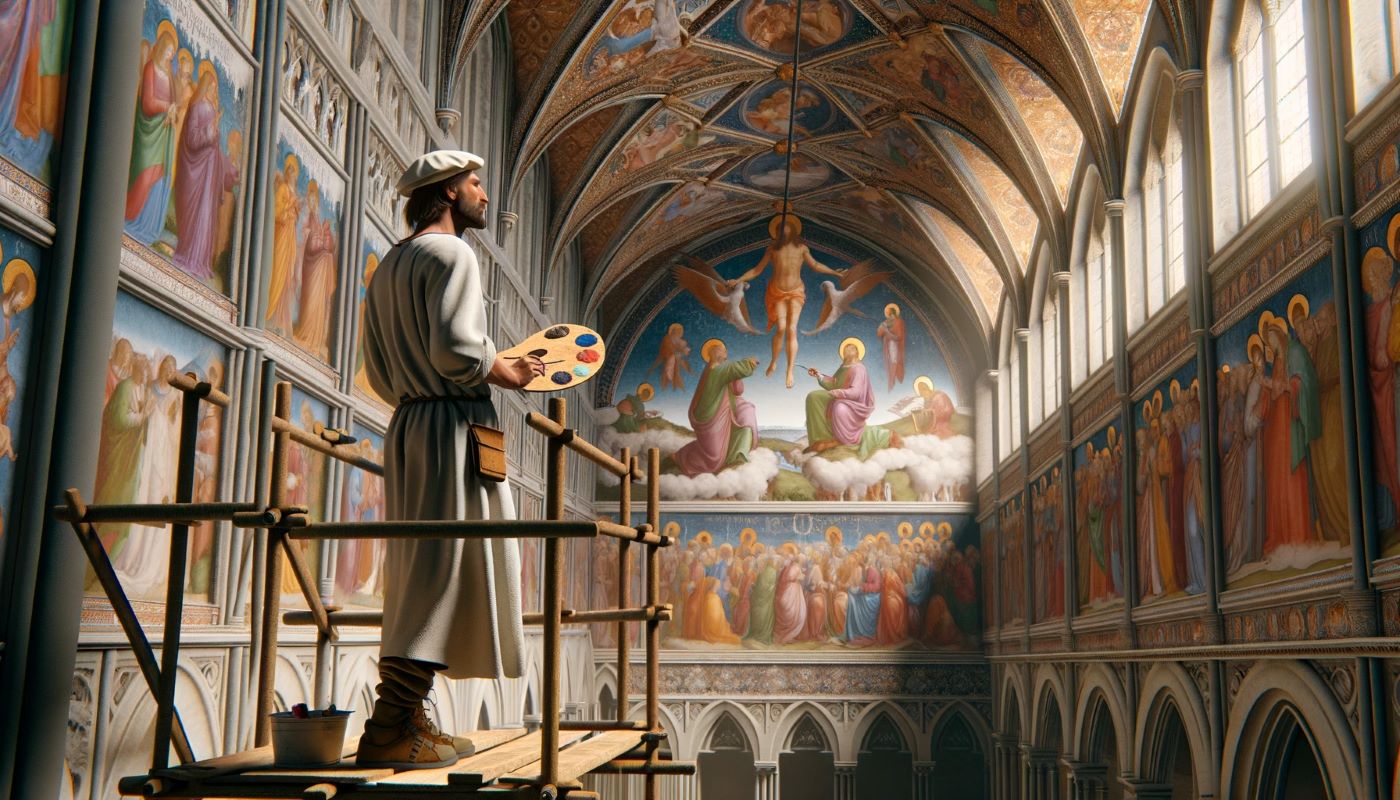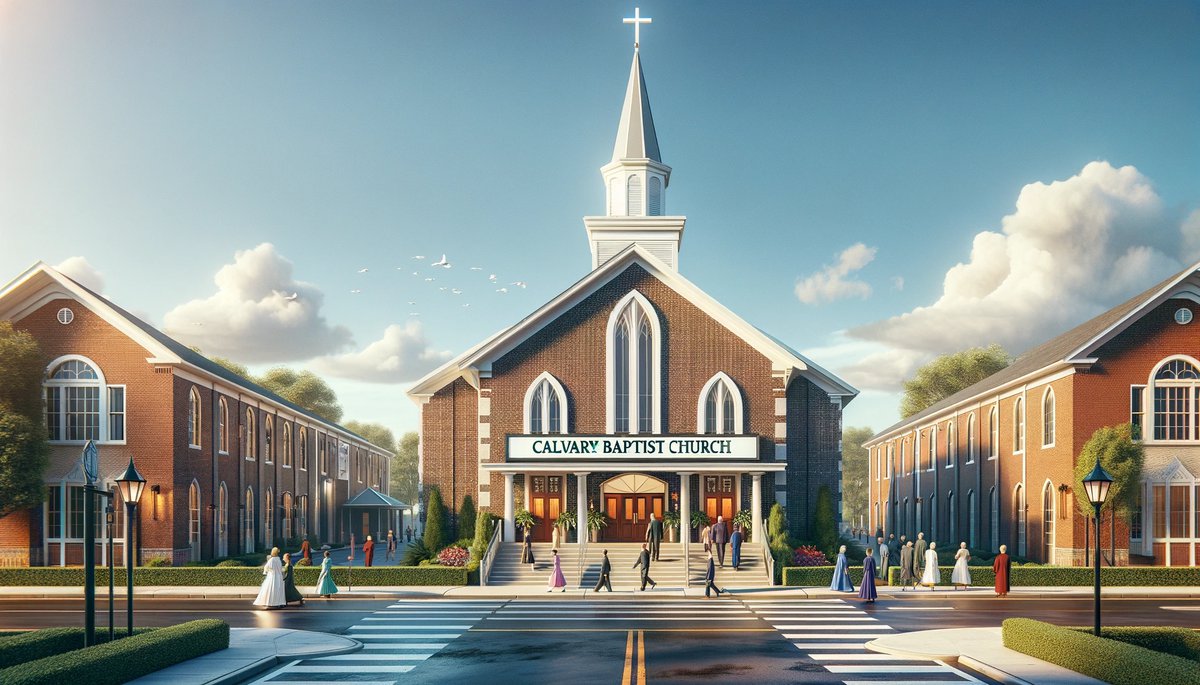Home>Arts and Culture>Who Started Calvary Chapel Churches


Arts and Culture
Who Started Calvary Chapel Churches
Published: March 4, 2024
Jason DeRose, Managing Editor at Christian.net, uses his expertise in religion and journalism to deepen understanding of faith's societal impacts. His editorial leadership, coupled with a strong academic background, enriches the platform’s diverse content, earning him recognition in both journalism and religious circles.
Discover the origins of Calvary Chapel churches and the influential figures who played a pivotal role in its establishment. Learn about the impact of Calvary Chapel on arts and culture.
(Many of the links in this article redirect to a specific reviewed product. Your purchase of these products through affiliate links helps to generate commission for Christian.net, at no extra cost. Learn more)
Table of Contents
The Early Years of Calvary Chapel
Calvary Chapel is a network of Christian churches that originated in the late 1960s in Southern California. The movement began with a small group of believers who gathered for informal worship and Bible study. The early years of Calvary Chapel were characterized by a spirit of openness and a focus on teaching the Bible in a way that was relevant to the lives of young people. The church's informal style and emphasis on contemporary worship music set it apart from more traditional denominations, attracting a diverse group of followers.
-
Informal Beginnings: Calvary Chapel's early years were marked by a sense of informality and a rejection of traditional church structures. The church's founder, Pastor Chuck Smith, sought to create a welcoming environment where people could come as they were and experience the love of Christ without judgment. This approach resonated with many young people who were disillusioned with organized religion and sought a more personal and authentic expression of faith.
-
Emphasis on Bible Teaching: From the outset, Calvary Chapel placed a strong emphasis on the systematic teaching of the Bible. Pastor Chuck Smith's expository preaching style, in which he would expound upon the meaning and relevance of biblical passages, became a hallmark of the church. This commitment to teaching the Scriptures in a clear and accessible manner helped to attract a growing number of followers who were hungry for a deeper understanding of the Christian faith.
-
Focus on Contemporary Worship: In the early years, Calvary Chapel also distinguished itself through its embrace of contemporary worship music. The church incorporated folk and rock music into its services, providing a refreshing alternative to the traditional hymns and liturgical music found in many other churches. This approach to worship resonated with the countercultural ethos of the 1960s and 1970s, drawing in a generation of young people who were seeking spiritual meaning in the midst of social upheaval.
-
Community and Outreach: As Calvary Chapel grew, it became known for its strong sense of community and its commitment to outreach. The church's members were encouraged to live out their faith in practical ways, serving the needs of the local community and reaching out to those who were marginalized or in need. This emphasis on social justice and compassionate action helped to further distinguish Calvary Chapel as a vibrant and relevant expression of Christianity in the modern world.
The early years of Calvary Chapel laid the foundation for a movement that would have a profound impact on the landscape of contemporary Christian worship and ministry. The church's commitment to openness, biblical teaching, contemporary worship, and community outreach set it apart as a dynamic and influential force within the broader Christian tradition.
Read more: What Happened To Calvary Chapel
The Influence of Pastor Chuck Smith
-
Expository Preaching: Pastor Chuck Smith's influence on Calvary Chapel and the broader Christian community was profound. His expository preaching style, characterized by a systematic and in-depth exploration of biblical passages, set a new standard for engaging and relevant sermons. By delving into the historical and cultural context of the Scriptures, Pastor Chuck brought the Bible to life for his listeners, making its teachings accessible and applicable to their everyday lives.
-
Embrace of Contemporary Culture: Pastor Chuck's willingness to embrace contemporary culture and music was another key aspect of his influence. At a time when many churches were resistant to change, Pastor Chuck recognized the power of music as a tool for reaching and engaging with a younger audience. By incorporating folk and rock music into Calvary Chapel's worship services, he created a space where young people felt comfortable expressing their faith in a way that resonated with their own cultural experiences.
-
Commitment to Discipleship: Pastor Chuck's emphasis on discipleship and mentoring also left a lasting impact on the Calvary Chapel movement. He believed in the importance of investing in the spiritual growth and development of individuals, and he encouraged a culture of mentorship within the church. This focus on discipleship not only helped to nurture a new generation of Christian leaders but also fostered a sense of community and accountability within the church.
-
Global Outreach: Pastor Chuck's influence extended far beyond the walls of Calvary Chapel. Through his commitment to global missions and evangelism, he inspired a spirit of outreach and engagement with the broader world. Under his leadership, Calvary Chapel established a network of international churches and ministries, spreading the influence of the movement to countries around the world.
-
Legacy of Innovation: Perhaps most significantly, Pastor Chuck's influence can be seen in the legacy of innovation and adaptability that he instilled within Calvary Chapel. His willingness to break from traditional church structures and embrace new forms of worship and ministry laid the groundwork for a movement that continues to evolve and thrive to this day.
Pastor Chuck Smith's influence on Calvary Chapel and the wider Christian community cannot be overstated. His commitment to expository preaching, embrace of contemporary culture, focus on discipleship, global outreach, and legacy of innovation have left an indelible mark on the church and continue to shape its identity and mission.
The Growth and Spread of Calvary Chapel Churches
-
Expansion Beyond Southern California: What began as a small gathering of believers in Southern California soon blossomed into a widespread movement. Calvary Chapel churches began to spring up in various cities and towns across the United States, attracting individuals who were drawn to the church's emphasis on biblical teaching, contemporary worship, and a welcoming community. As the network of churches grew, so too did the influence of Calvary Chapel on the landscape of American Christianity.
-
International Reach: The growth of Calvary Chapel was not limited to the United States. The movement's impact extended to other parts of the world, as missionaries and church planters carried the message of Calvary Chapel to distant shores. Today, Calvary Chapel churches can be found in countries around the globe, from Europe and Africa to Asia and beyond. This international reach has helped to shape the movement into a truly global phenomenon, with a presence that transcends cultural and geographical boundaries.
-
Diverse and Inclusive Communities: One of the hallmarks of Calvary Chapel's growth has been its ability to attract a diverse array of individuals from different backgrounds and walks of life. The church's emphasis on inclusivity and its commitment to creating a welcoming environment for all have contributed to the formation of vibrant and diverse communities within the Calvary Chapel network. This diversity has enriched the movement, fostering a sense of unity amidst a wide range of cultural, ethnic, and social differences.
-
Influence on Contemporary Worship: As Calvary Chapel churches multiplied, so too did their impact on the landscape of contemporary Christian worship. The movement's embrace of contemporary music and its innovative approach to worship style and presentation have influenced countless other churches and worship communities. The Calvary Chapel model of worship, characterized by its informality, emphasis on heartfelt expression, and incorporation of modern musical styles, has left an indelible mark on the broader Christian worship scene.
-
Continued Growth and Adaptation: Despite its widespread influence, Calvary Chapel has not remained stagnant. The movement has continued to adapt and evolve in response to changing cultural and social dynamics. New generations of leaders and believers have taken up the mantle of Calvary Chapel's mission, bringing fresh perspectives and innovative approaches to ministry. This ongoing growth and adaptation have ensured that Calvary Chapel remains a relevant and impactful force within contemporary Christianity.
The growth and spread of Calvary Chapel churches have been characterized by expansion beyond Southern California, international reach, diverse and inclusive communities, influence on contemporary worship, and continued growth and adaptation. These factors have contributed to the enduring impact of Calvary Chapel on the landscape of modern Christianity.
The Impact of Calvary Chapel on Modern Christianity
-
Contemporary Worship Movement: Calvary Chapel's influence on modern Christianity is perhaps most evident in the realm of worship. The movement's embrace of contemporary music and informal worship styles has had a profound impact on the broader landscape of Christian worship. Many churches and worship communities have adopted the Calvary Chapel model, incorporating modern musical styles and creating a more relaxed and participatory worship experience for congregants.
-
Emphasis on Expository Teaching: Another significant impact of Calvary Chapel on modern Christianity is its emphasis on expository teaching of the Bible. This approach, popularized by Pastor Chuck Smith, has influenced countless pastors and preachers, shaping the way in which the Scriptures are taught and expounded upon in churches around the world. The commitment to in-depth, verse-by-verse exploration of the Bible has become a hallmark of many contemporary Christian sermons and teachings.
-
Global Missions and Outreach: Calvary Chapel's focus on global missions and outreach has also left a lasting impact on modern Christianity. The movement's commitment to spreading the message of the Gospel to the farthest reaches of the world has inspired a new generation of Christians to engage in missions and evangelism. The global outreach efforts of Calvary Chapel have helped to shape a more globally-minded and outward-focused approach to Christian ministry.
-
Innovation and Adaptability: Calvary Chapel's legacy of innovation and adaptability has contributed to a culture of creativity and relevance within modern Christianity. The movement's willingness to break from traditional church structures and embrace new forms of worship and ministry has set a precedent for churches to remain adaptable and responsive to the changing needs of society. This spirit of innovation continues to influence the way in which many churches approach outreach, discipleship, and community engagement.
-
Formation of Diverse Christian Communities: The impact of Calvary Chapel on modern Christianity can also be seen in the formation of diverse and inclusive Christian communities. The movement's emphasis on creating welcoming environments for individuals from all walks of life has contributed to the development of churches that are reflective of the rich diversity present in contemporary society. This focus on inclusivity has helped to shape a more welcoming and open-hearted expression of Christianity in the modern era.
In summary, the impact of Calvary Chapel on modern Christianity is multifaceted and far-reaching. From its influence on worship styles and teaching methods to its global outreach efforts and emphasis on inclusivity, the movement has left an indelible mark on the contemporary Christian landscape. As the legacy of Calvary Chapel continues to unfold, its impact on modern Christianity is likely to endure for generations to come.


